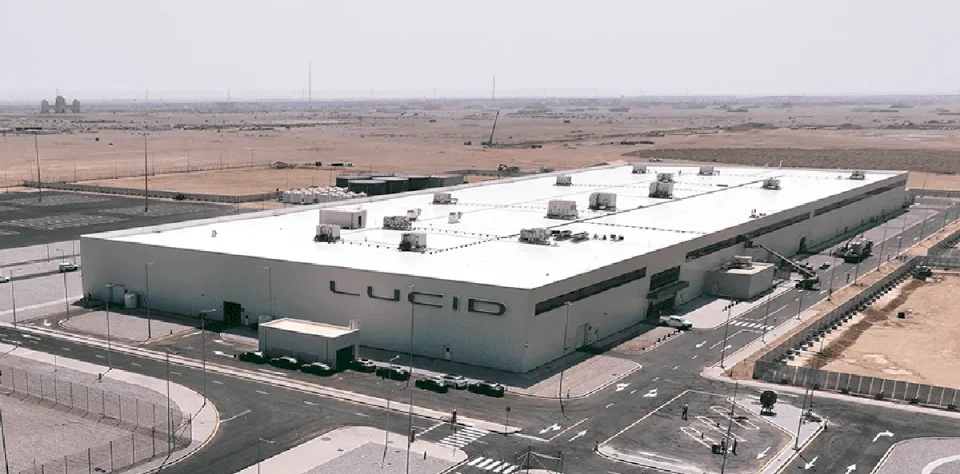
Saudi Arabia and Australia Prepare to Expand Cooperation Bridges in Mining and Investment
SadaNews - Saudi Arabia is intensifying its efforts to strengthen relations with Australia, a country that has not had significant trade dealings with the Kingdom, at a time when Riyadh seeks to capitalize on the new momentum resulting from deals in minerals, mining, and financing.
Officials from both countries will meet this week in Riyadh as part of the "Saudi-Anzuck Forum" (Australia, New Zealand, and the United Kingdom) to discuss issues of trade, deals, and investment. Representatives from New Zealand and the UK are also scheduled to participate, as the four countries seek to diversify their trading channels amid global tensions arising from tariffs.
The two-day forum aims to build on the emerging relationship between Saudi Arabia and Australia, after Hancock Prospecting, owned by businesswoman Gina Rinehart, and Saudi Arabian mining company Ma’aden, won the rights for joint mineral exploration in the Kingdom, which is estimated to have mineral reserves worth about $2.5 trillion.
Recently, Australia's Macquarie Asset Management signed an agreement with the Saudi Public Investment Fund, which has assets worth nearly $1 trillion, to pursue investment opportunities and establish a presence in Riyadh, marking one of the strongest indications of Australian financial institutions expanding in the Kingdom.
Increasing Interest from Australian Companies
Sam Jamshidi, Chairman of the Saudi Australian Business Council and founder of Trade Mark Group of Companies, which is hosting the event in Riyadh, stated, "The relationship is still in its beginning stages, but it is evolving rapidly. We see increasing interest from Australian companies, especially in the mining, agriculture, and healthcare sectors."
In many ways, the relationship seems to align naturally. Both countries are members of the G20, heavily focusing on natural resources, and are working to diversify their economies.
For Saudi Arabia, Vision 2030 focuses on attracting foreign investments, companies, and knowledge to build new industries where the Kingdom lacks significant expertise, in its efforts to decouple its economy from oil.
According to Khalid Al-Mudaifer, Deputy Minister of Industry and Mineral Resources for Mining Affairs, Australian companies, including "Hancock", represent about 10% of the 70 foreign companies operating in mineral resource exploration in the Kingdom.
He said in an interview in Sydney on Tuesday: "We are building a new sector almost from scratch. And where better than Australia? It has the knowledge and experience we need to build capacity."
Economic Partnerships and Mutual Business Ambitions
As for Australia, it has a more diversified economic base, but relies significantly on iron ore exports, most of which go to a single market, China. Thus, Canberra seeks to expand its export markets to reduce this dependence.
For example, Prime Minister Anthony Albanese signed an agreement with the United States this week to export more critical minerals, and the free trade agreement between Australia and the United Arab Emirates has come into effect.
Although Saudi Arabia and Australia may move towards a future free trade agreement of their own, both countries will benefit from the agreement with the UAE, given the latter's role as a key re-export hub to Gulf countries.
Bilateral trade volume between Australia and Saudi Arabia has grown over the years, reaching 2.1 billion Australian dollars (1.4 billion US dollars) in the 2024 fiscal year, compared to about 1.9 billion Australian dollars five years ago. Australia exports educational services, meat, and barley, while Saudi Arabia is a major energy supplier.
New Opportunities for Diplomacy and Political Closeness
Anas Aqtiq, a lecturer in economics and political economy of the Middle East at the Australian National University, said, "There is significant integration between the Saudi and Australian markets," but he pointed out that the scale of investments remains limited, as Saudi Arabia was not on the list of Australia's top 20 investment destinations in 2024, and vice versa.
Aqtiq added that he views the "Saudi-Anzuck Forum" as an opportunity to make important decisions or sign agreements that may pave the way for greater investment flows between the two countries.
The two sides are also expected to witness increasing diplomatic closeness, especially after Australia’s recent decision to recognize a Palestinian state, a move that contrasts with the United States, which is its main ally.
Saudi Crown Prince Mohammed bin Salman has long been one of the most prominent advocates for the recognition of a Palestinian state. His rapprochement has recently increased with leaders who have taken steps to recognize a Palestinian state, including French President Emmanuel Macron.
أمنة موسلي from the Gulf Research Center in Jeddah stated that "this rapprochement on a pivotal issue reflects a growing diplomatic coordination between the two countries," adding that it "opens opportunities for joint initiatives in peacebuilding and diplomacy."

Trump threatens to impose tariffs on any country selling oil to Cuba, will reveal his nomi...

After rejecting Maliki.. What are Trump's economic cards to pressure Iraq?

Jordanian Central Bank Decides to Maintain Interest Rate

Oil Continues to Rise Amid Increasing US Threats to Iran

Norwegian Sovereign Wealth Fund Reduces Its Stakes in Major American Technology Companies

Gold Surpasses $5,500 and Silver Records New All-Time High

The U.S. Federal Reserve Holds Interest Rates Steady in Its First Meeting of 2026
